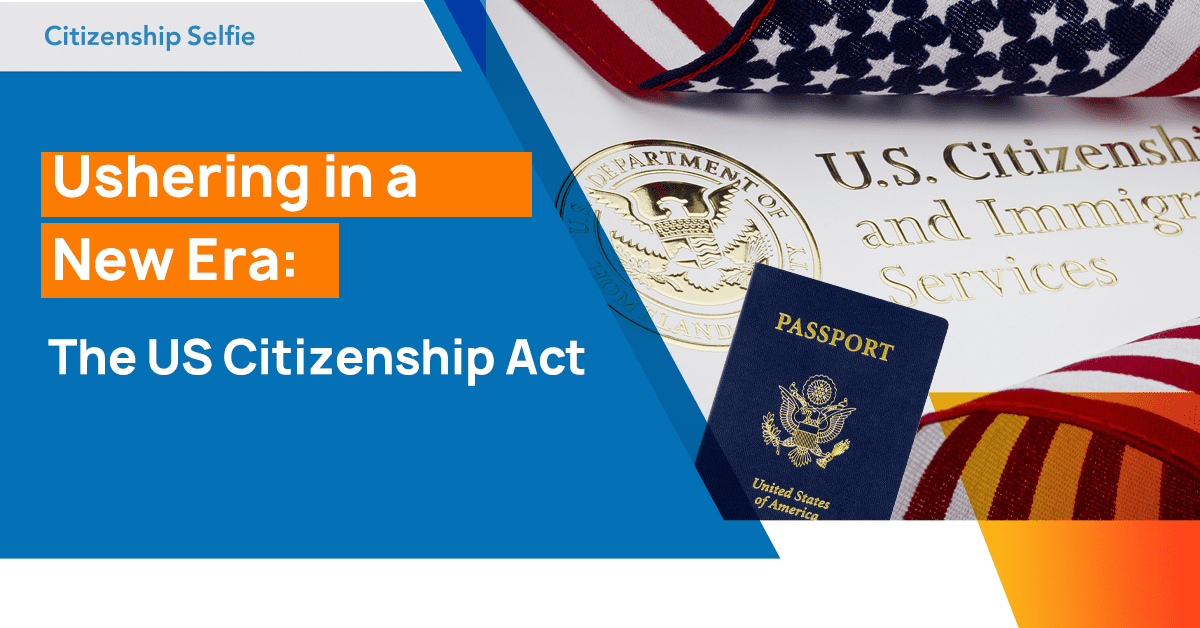In a monumental stride toward reshaping the nation’s immigration landscape, President Joe Biden introduced the New US Citizenship Act of 2021, which is still binding in 2023. This sweeping legislative proposal unveiled on his inaugural day in office, marks a pivotal step towards enacting comprehensive immigration reform. A departure from the past administration’s policies, the new US Citizenship Act embodies the Biden Administration’s vision for a more inclusive, equitable, and forward-looking approach to immigration.
The Genesis of the Reform: A Response to a Shifting Paradigm
At the core of the new US Citizenship Act lies a direct response to the need for change, prompted by evolving societal norms, values, and a desire for a more compassionate immigration system. As the Trump era drew close, the call for reform echoed louder, fueled by a passionate desire to address the inequities, challenges, and human stories that characterize the immigration journey.
The New US Citizenship Act of 2021 encapsulates the essence of President Biden’s commitment to fostering a more compassionate and inclusive immigration system. Against a nation reeling from past turbulence, this legislation emerges as a beacon of hope, promising to guide the United States toward a future built on unity, equity, and progress.
Purpose of the US Citizenship Act
Curious about the objectives of the New US Citizenship Act? Here’s all you need to know:
Revamping Immigration Policies and Values: A Closer Look at the Proposed Changes
The new US citizenship act aims to introduce significant and crucial modifications to the existing immigration law. In essence, the novel act emphasizes its intention to reinstate compassion and American principles into the nation’s immigration system, thus enhancing its overall functioning.
As widely known, the previous administration led by Donald Trump exerted considerable efforts to tighten immigration regulations, impacting numerous individuals. He implemented a series of executive orders and regulations to curtail immigration and reduce the number of individuals entering the United States. Many people threw criticism at these executive orders and regulations for their perceived discriminatory nature. Subsequently, this order was revoked through a distinct presidential proclamation.
Consequently, the Biden administration is determined to effectuate change and prevent discriminatory restrictions. Their objective is to proactively eliminate any form of bias rooted in religion and curtail the scope of presidential authority to impose similar bans in the future.
Another primary objective of the proposed legislation is to rephrase the language employed in immigration laws and statutes. The term “alien” is frequently employed about noncitizens and foreign nationals. The new act suggests replacing this term with “noncitizen.” This alteration aims to reflect a more inclusive and respectful terminology in immigration matters.
Restructuring the US Immigration Landscape
The New US Citizenship Act aims to revamp various facets of the existing American immigration framework. To provide a clearer perspective, its primary focus is to extend increased possibilities to undocumented immigrants or those with temporary status who aspire to attain citizenship. Additionally, the act strives to enhance the overall efficiency of employment-based immigrant procedures.
Navigating the Path to Citizenship: Key Phases and Eligibility Criteria
It takes eight years for an an undocumented individual to attain citizenship under the US Citizenship Act of 2021. However, it’s essential to understand that this pathway consists of two distinct phases, each with its requirements.
In the initial phase, applicants will be granted temporary legal status, marking a significant step towards regularization. After five years, they gain the eligibility to apply for permanent residency. They must meet certain conditions, including the obligation to fulfill tax obligations, pass thorough background checks, and complete other stipulated criteria.
The subsequent phase focuses on those who possess green cards and are willing to pursue US citizenship. This involves extra background checks and meeting English and US civics knowledge requirements before applying.
Among the driving forces behind recent immigration legislation, three groups have emerged at the forefront in recent years: the Dreamers, TPS (Temporary Protected Status) Recipients, and undocumented individuals. The new law grants these groups the chance to obtain permanent residency, a significant advantage.
Enhancing Family Unity and Clearing Immigration Backlogs
The overarching objectives of the new legislation encompass addressing multifaceted challenges within the US immigration system. These goals include resolving backlogs, reducing wait times, raising per-country visa caps, and reclaiming unused visas for family-based immigration.
The new act aims to eliminate the 3 and 10-year bars to prevent family separations. The primary focus shifts towards bolstering familial ties. Integral to this is the incorporation of permanent partnerships and the proactive elimination of discrimination faced by LGBTQ+ families.
Given the prolonged backlog issues of green card availability, the proposed bill holds the potential to curtail wait times significantly. Approved family-sponsored petitions allow temporary entry for family reunification while awaiting green card availability.
Furthermore, the bill sets its sights on the removal of the one-year deadline for submitting asylum claims. A notable provision involves allocating funds to alleviate the backlog associated with asylum applications. Additionally, the legislation endeavors to fortify safeguards for applicants of T visas, U visas, and the Violence Against Women Act (VAWA). There is proposal to increase the annual cap for U visas from 10,000 to 30,000, exclusively for victims of crime.
Fueling Economic Prosperity
A central thrust of the new legislative proposal revolves around bolstering the economic landscape of the United States. We accomplish this by reclaiming dormant visas, streamlining employment-based visa processing, removing per-country caps, and reducing wait times.
Of significant note is the impetus to create enhanced opportunities within the H1B visa realm. Dependents of H1B visa holders stand to benefit from this initiative, with the prospect of obtaining work authorization. This endeavor constitutes an extension of the existing H4 Employment Authorization Document, thereby facilitating increased labor force participation and contributing to the overarching goal of economic advancement.
Final Recap
For immigrants, the recently enacted New US Citizenship Act, led by President Biden and his administration, holds potential significance. Monitor this bill closely for its potential impact on your situation, as the journey ahead may be lengthy.
Note that navigating the complexities of US immigration law and realizing your aspirations for US citizenship demands informed guidance. At Citizenship Selfie, our team of highly-seasoned and adept immigration attorneys is dedicated to helping you achieve your American citizenship goals.
With our experience and professionalism, we aim to provide effective legal support, ensuring you navigate the path to citizenship confidently. Your dreams of US citizenship are within reach, and we are here to guide you every step of the way.






